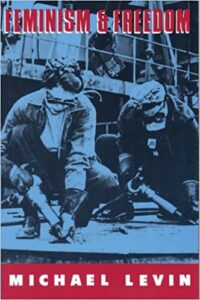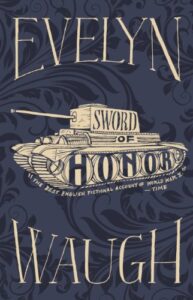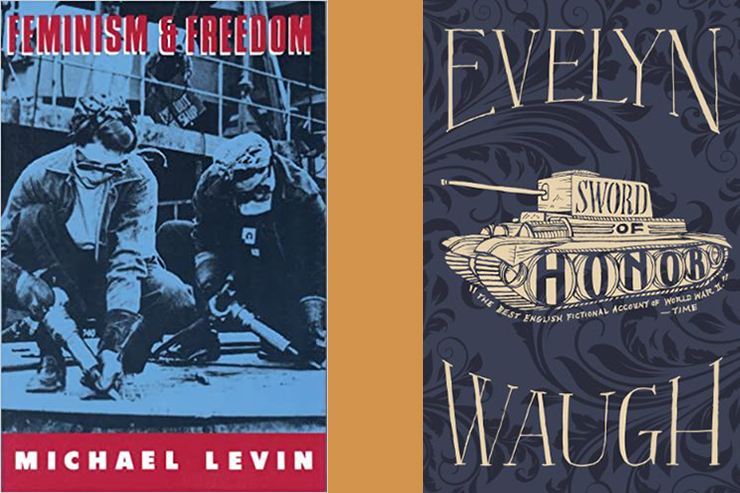
Feminism has made an immense contribution to the ongoing collapse of Western civilization. Michael Levin’s book is one of the clearest, most systematic accounts of the movement’s nature and its consequences.
In this 1987 book, Levin concludes that there is no single idea more pernicious or more responsible for harm to sober and sustainable cultural order than the one that sits at the base of feminist logic: the belief that innate differences between men and women do not exist. And even if such differences do exist, the feminists argue, those ought to be ignored or actively engineered out of existence, when possible, in the interests of “gender equality.”
But what do feminists mean by that concept, “equality”? When mathematicians and scientists use the term, it refers to the exact correspondence in quantity or degree between things. 1 + 1 = 2. The two sides of the equal sign are mirror expressions of each other. Most feminists are sufficiently attentive to reality to know that such a definition will not work when comparing human males and females. These two categories of the species can nearly always be distinguished at a glance.
But for the feminist, the working definition of “equality” is “the treatment of men and women as if they were the same.” Levin methodically demonstrates why such a social theory must inevitably produce major problems. He mines evolutionary biology for empirical evidence of innate sex difference. With irresistible argumentative force, Levin shows that any truly meritocratic evaluation will sort men and women into groups—perhaps a little fuzzy at the edges but undeniably coherent—with differing interests and capacities.
A realistic perspective accepts that this natural division between the sexes will lead to most women favoring life paths that involve sociality and interpersonal skill, and most men preferring to work with objects and systems. But American society has for some decades now been preaching to young women that they should not want what they naturally want. In addition, we tell them that the only possible thing that prevents a 50/50 gender split in every single role and profession is unjust patriarchal power. In such a culture, it cannot be long before the foundation begins to give way.
The rigor of Levin’s logic and the facility of his expression in this book is an aesthetic pleasure. Anyone who has read much contemporary feminism—with its convolutions and turgidity, its moral hectoring substantiated by nothing more than the charge that anyone opposing it is a monster—cannot but appreciate Levin’s lucidity.
—Alexander Riley

In this 70th year of Elizabeth’s reign and at the dawn of Charles III’s, let me draw your attention to a literary monument that, in authorship, is contemporaneous with the former’s succession and, as a story, recounts the last years of an old Britannia, which finds its predictable decay as the latter’s reign begins. The author, who in his maturity was one of the greatest of Elizabeth’s reign, once famously commented on why he did not vote: “I do not aspire to advise my sovereign in her choice of servants.” Yet, if Waugh and his admiring readers held more influence than the current ruling class, perhaps the second Elizabethan era might have staved off the march of modernity more than it did.
Evelyn Waugh’s Sword of Honor trilogy (Men at Arms, 1952; Officers and Gentlemen, 1955; and The End of the Battle, 1961) tells the story of Guy Crouchback, heir to an ancient English Catholic recusant family, unlucky in love, searching for meaning in life at the start of World War II. Seeking his own honor, inspired by the tradition of his religion and family, he enters the army as he approaches middle age. What begins as a noble endeavor for personal fulfillment and a cause that he thinks is worthy of galvanizing a people devolves into a truce—and even subservience—with the thing that may destroy the civilization for which he fights. What remains, however, is his personal honor.
Veterans of the military will find hilarious Waugh’s descriptions of military life, the characters who live it, and the disorder of the orders they follow. Everything from the alphabet soup of military abbreviations to barracks-room conversation is perfectly authentic. The descriptions of a soldier’s vacillation between attention to detail and boredom in drill are punctuated by situations that would be unbelievable but for the fact that the reader knows that somewhere, in some conflict, people like the cycloptic brigadier and the junior officer preoccupied with his “thunder box” still do exist.
Modern Americans will find difficulty in Waugh’s mid-20th-century British idiom. Nevertheless, the story is profoundly timeless, depicting family difficulties, illicit pleasures, friendships (both real and sham), personality conflicts, death, sorrow, and hilarity. This is a war story within a fallen and confused world, but with glimpses of a final victory. One wonders what things might be like if more people took the advice of Guy’s father, Gervase Crouchback: “Quantitative judgments don’t apply. If only one soul was saved, that is full compensation for any amount of loss of ‘face.’”
—John M. DeJak

Leave a Reply